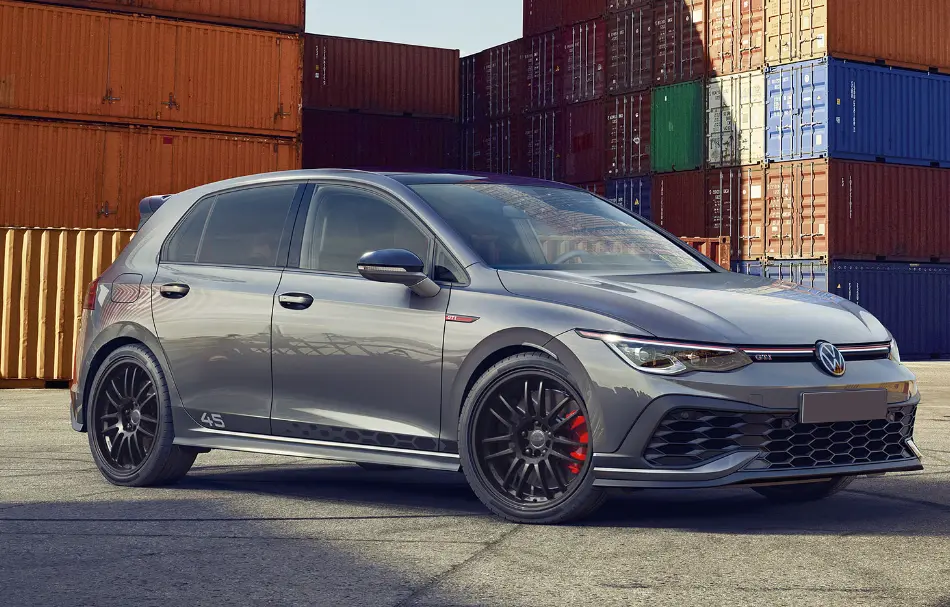In the world of cars, wheels are more than just round things that hold your tires. They’re a crucial part of your vehicle’s performance, handling, and style. Just like you wouldn’t wear running shoes for a formal event, you wouldn’t put just any type of wheel on your car. The wrong choice can affect everything from how your car accelerates to how smoothly it rides.
This is especially true in the aftermarket wheel scene, where you have a ton of choices beyond the standard wheels that came with your car. Three terms you’ll hear a lot are forged, cast, and flow form. But what do these terms actually mean, and how do they affect your ride? That’s exactly what we’re going to break down in this blog post, helping you make the best decision for your vehicle and your budget.
Cast Wheels: The Affordable Option
Cast wheels are the most common type of aftermarket wheel, and for a good reason: they’re generally the most affordable. They’re made by pouring molten aluminum into a mold, which is a relatively simple and cost-effective manufacturing process. This makes them a great entry point for people who want to upgrade from their stock wheels without breaking the bank.
Pros of Cast Wheels:
- Cost-Effective:Cast wheels are typically the most budget-friendly option.
- Wide Availability:Because they’re so common, cast wheels are easy to find in a variety of styles and sizes.
Cons of Cast Wheels:
- Strength:Cast wheels aren’t as strong as forged or flow form wheels. They’re more likely to bend or crack under heavy stress, like hard cornering or hitting a pothole.
- Weight:Cast wheels tend to be heavier than forged or flow form wheels. This extra weight can make your car feel a bit sluggish and affect its handling.
Flow Form Wheels: Bridging the Gap
Flow form wheels, also called flow forged or rotary forged, offer a sweet spot between cast and forged wheels. They start out as a cast wheel but then go through an extra step where the barrel (the outer part of the wheel) is spun and stretched under high pressure. This process makes the barrel stronger and lighter, similar to a forged wheel. As a result, flow form wheels offer better performance than cast wheels at a price that’s still more accessible than forged wheels.
Pros of Flow Form Wheels:
- Enhanced Strength:Flow form wheels are stronger than cast wheels, making them more durable and less likely to bend.
- Lighter Weight:They’re lighter than cast wheels, which can improve your car’s handling and acceleration.
Cons of Flow Form Wheels:
- Cost:Flow form wheels are more expensive than cast wheels.
- Availability:They’re not as widely available as cast wheels.
Forged Wheels: Top-Tier Performance
Forged wheels are the crème de la crème of the wheel world. They’re made by hammering a block of aluminum into shape under extreme pressure. This creates a wheel that’s incredibly strong and lightweight, capable of handling serious performance driving. They’re also highly customizable, allowing you to get the exact look and fitment you want. However, all this awesomeness comes at a price: forged wheels are the most expensive type of wheel.
Pros of Forged Wheels:
- Ultimate Strength:Forged wheels are the strongest type of wheel available.
- Featherweight Design:They’re significantly lighter than cast or flow form wheels, giving you the best possible performance.
- Customization Options:Forged wheels can be made to your exact specifications. You can choose the size, width, offset, bolt pattern, and finish to perfectly match your car and your style.
Cons of Forged Wheels:
- High Cost:Forged wheels are the most expensive option.
Other Types of Rims to Consider
While cast, flow form, and forged wheels are the most common aftermarket options, it’s worth mentioning a few other types of rims that you might come across:
- Steel Wheels:These are the original, old-school wheels. They’re strong and durable, but also quite heavy. You’ll typically find them on trucks and off-road vehicles, or as a very budget-friendly option for basic cars. Steel wheels are also more prone to rust.
- Alloy Wheels:This is a broad term that includes both cast and forged aluminum wheels. Sometimes you’ll see the term “alloy wheels” used specifically to refer to cast aluminum wheels.
- Carbon Fiber Wheels:These are the newest and most exotic type of wheel. They’re incredibly lightweight and strong, but also incredibly expensive. You’ll mostly see them on high-performance sports cars and race cars.
Choosing the Right Wheels for You
With all this information about different types of wheels, how do you actually choose the right ones for your car and your needs? Here are a few things to consider:
1. Your Budget:
- Cast wheels:The best choice if you’re on a tight budget.
- Flow form wheels:A good balance of price and performance.
- Forged wheels:If you’re serious about performance and have the money to spend, forged wheels are the way to go.
2. Your Driving Style:
- Daily driving:Cast or flow form wheels will likely be sufficient.
- Performance driving:Forged wheels will give you the best handling and responsiveness.
- Off-roading:Steel wheels or heavy-duty cast wheels are best for handling tough terrain.
3. The Look You Want:
- Cast wheels:Available in a wide variety of styles to match your car’s aesthetic.
- Flow form wheels:Also offer a good range of styles, though not as many as cast wheels.
- Forged wheels:Highly customizable, allowing you to create a truly unique look.
A Quick Example:
Let’s say you have a sporty hatchback that you mainly use for daily driving, but you also enjoy taking it to the track on weekends. You want wheels that look great, improve handling, and are durable enough for occasional track use. In this case, flow form wheels would likely be a good choice. They offer a good balance of strength, weight, and price, and you can find them in styles that complement a sporty car.
Ensuring Quality and Safety: The Importance of Reputable Manufacturers
Whether you choose cast, flow form, or forged wheels, it’s crucial to buy from a reputable manufacturer. This is especially true for cast wheels, where quality can vary significantly. A poorly made cast wheel could crack under stress, potentially leading to a dangerous situation.
Here are a few signs of a reputable manufacturer:
- Established Brand:They have a history of producing quality wheels.
- Positive Reviews:Check online reviews to see what other customers have experienced.
- Safety Testing:Their wheels should meet or exceed industry safety standards.
- Strong Warranty:A good warranty shows that the manufacturer stands behind their product.
Vesteon, a well-established company specializing in the design and manufacturing of wheels, is a prime example of a reputable manufacturer. They offer a wide range of wheels, including Vesteon’s OEM forged rim, known for its high quality and performance. You can learn more about their offerings through their Vesteon Customization Service.
The Bottom Line: Informed Decision-Making is Key
Choosing the right wheels for your car is a personal decision that depends on your budget, your driving style, and the look you want. Cast wheels are the most affordable option, flow form wheels offer a balance of price and performance, and forged wheels provide the ultimate in strength and lightweight design. Regardless of which type you choose, be sure to buy from a reputable manufacturer to ensure quality and safety. By taking the time to understand the differences between these types of wheels, you can make an informed decision that will enhance your driving experience for years to come.




